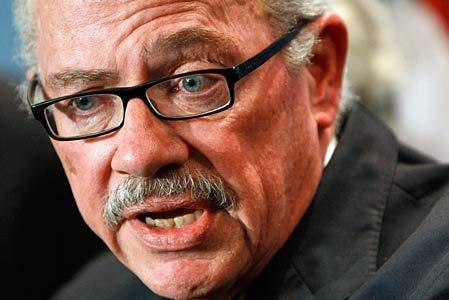Had former Congressman Bob Barr decided to simply retire and return to private life upon leaving Congress in 2003, nobody would have blamed him. After an illustrious and influential career in the House of Representatives, prolific support for conservative causes, and a presidential candidacy, Barr had already accomplished a great deal. Rather than relaxing during his post-electoral career, however, the sixty-four year old attorney spent a decade writing, advocating, and speaking on behalf of liberty-minded issues.
As the years progressed, Barr became increasingly worried by what he saw occurring in Washington: the erosion of civil liberties, the expansion of federal power, and the unwillingness of the Legislature to stand up to the Executive Branch. Consequently, a full decade after leaving office, Barr has decided he is ready to make a comeback.
“As many Americans have, over the past five and a half years, my concerns for the future of the country was heightened considerably,” said Barr. “Knowing the Congress and how to get things done up there, and having very strong conservative views on public policy issues, I was very interested in seeking election back to Congress.”
When Representative Phil Gringey opted to run for the Senate, Barr decided to launch his own Congressional campaign in Georgia’s Eleventh District, believing his experience as a legislator could help steer national policy in the right direction. In post-September 11th America, where counter-terrorism and national security are the primary topics of discussion, that means standing up for the Fourth Amendment. After-all, the debate over how to balance the Bill of Rights (and the protections it guarantees) with the need to defend the homeland is a more contentious point of debate than ever before. For Barr, who initially voted in favor of the Patriot Act but later became one of its most vocal critics (appearing on such television series as The Colbert Report, Glenn Beck, and Penn and Teller’s Showtime program to speak out against its abuse), the government has gone too far.
“The government doesn’t want individuals to have private ideas, property, wealth, or communications because that means they are more in control of their own life and not the government,” said Barr. “There is a natural tendency for the government to move into the individual sphere the gain control. Because of the fear of terrorism and another terrorist attack, many people were willing to accept these intrusions into their private life in the name of national security.”
A libertarian-leaning conservative, Barr has consistently warned that the Constitution is being eroded under the weight of government power. When the alarm was first sounded ten years ago, it was largely ignored; today, the public is more focused. Large segments of the public, previously apathetic to Big Brother’s existence, have become increasingly suspicious of the federal government’s need to pry into their personal affairs. Barr believes the high-profile NSA and IRS scandals have “awakened people to these dangers to a degree I haven’t seen before, and that’s good. But its important that we have political leaders that will maintain that interest and make sure things are done. Yes, it has raised peoples concerns considerably, but now the ball is in the court of the Republicans and some Democrats on The Hill who share this view.”
Fighting for individual liberty is but one of the multitude of reasons Barr has decided to re-enter electoral politics, though he recognizes the aura surrounding the capitol has become very different, more divided and less productive than it was a decade ago.
“It’s become a much more difficult arena in which to get anything done,” said Barr, who believes the lack of strong, committed leadership on both sides of the political aisle is largely to blame. During his first several terms in office, when Bill Clinton was President of the United States and Newt Gingrich was Speaker of the House, numerous legislative accomplishments were achieved despite the ever-present partisan divide. Barr attributes these successes to powerful leadership skills that were present in both the Republican and Democratic Parties during the 1990s.
“You had an environment with two very strong political leaders, Gingrich and Clinton,” said Barr. “Obviously, even though I had a very strong disagreement with Bill Clinton remaining in office, he was a very smart political leader and both he and Newt understood how the political machine or the political environment worked in Washington. We actually got a lot done balanced the budget, reformed welfare, cut taxes, and did a number of other things because we had two very good political leaders…That level of political leadership just isn’t evident anywhere on The Hill.”Should Bob Barr be elected to the United States Congress again, he will become the latest in a string on libertarian-minded Republicans who have made their way to office. Though he was already an elected representative, Barr believes that his views of minimal government and individual liberty are more needed now than ever before—judging by the positive response his candidacy has received and the overwhelmingly skeptical nature many Americans take towards Washington, he just might be right.
